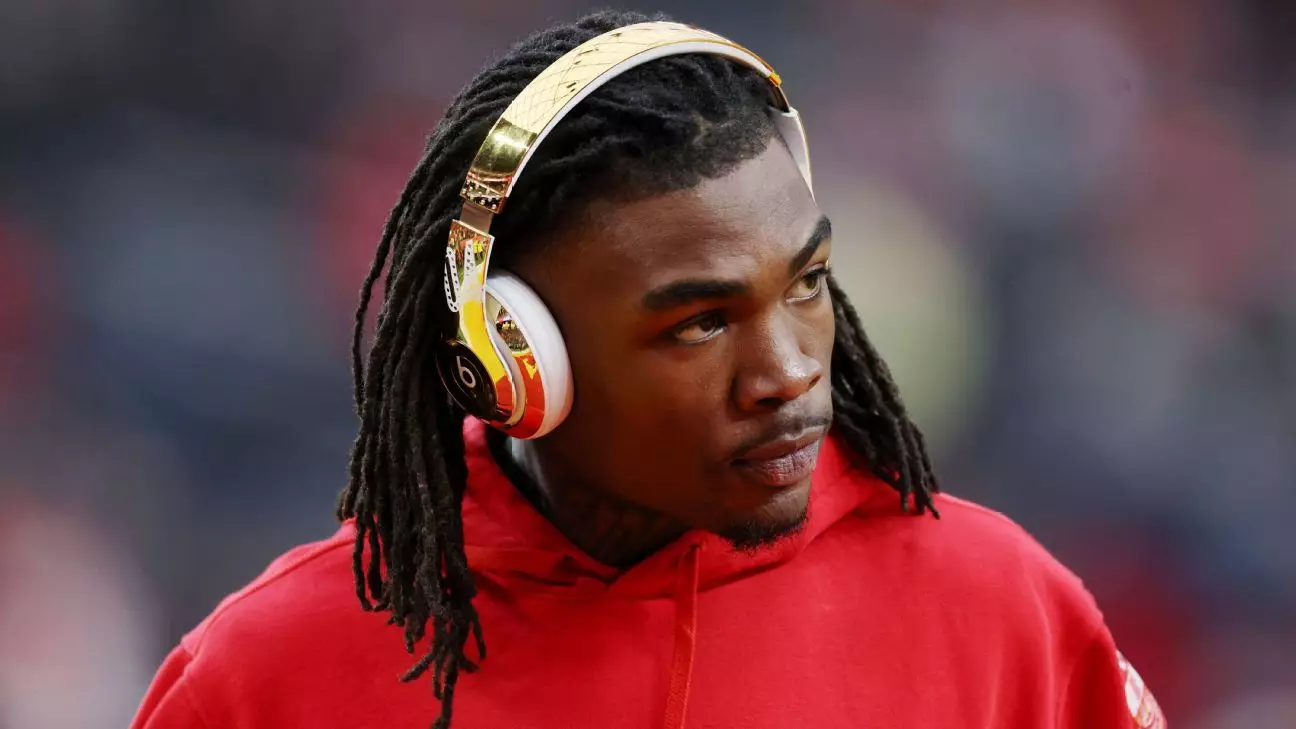In our society, athletic stars like Rashee Rice are often held on a pedestal, their achievements and talents creating an illusion of invulnerability. When someone reaches a level of fame, especially in high-profile leagues like the NFL, it’s easy to assume they are exempt from the same standards of responsibility that govern ordinary lives. This misplaced reverence fosters a troubling narrative: that greatness or notoriety can translate into immunity from the consequences of one’s actions. The recent case involving Rice’s reckless driving underscores this dangerous misconception. His high-speed crash, caused by his apparent disregard for safety and the lives around him, reveals that the glamour of celebrity often masks a lack of maturity and accountability. These individuals are not above the laws or societal expectations; their fame should amplify their duty to act responsibly, not diminish it.
The Illusion of Grace in the Face of Serious Negligence
What makes Rice’s situation so compelling—and disturbing—is the way society treats such incidents as isolated or excusable errors, rather than the dangerous manifestations of unchecked privilege. Paying over $115,000 in restitution, receiving deferred adjudication, and avoiding immediate jail time might seem like leniency, but they are merely superficial gestures that perpetuate the myth of grace without real accountability. When public figures are allowed to sidestep meaningful consequences, it emphasizes the damaging message that reckless behavior—especially at high speeds involving vehicles capable of lethal harm—is just a mistake to be forgiven, not a dangerous act warranting serious repercussions. This attitude weakens the societal fabric that constructs safe and respectful environments for all, regardless of one’s celebrity status.
The Broader Implications for Society and Justice
The case of Rice illuminates a troubling trend: society often protects the privileges of the famous over the safety of ordinary citizens. The Dallas district attorney’s cautious tone about “opportunities to mature” and “leading by example” seems to suggest that influential athletes like Rice are given a second chance, rather than held accountable from the outset. This leniency not only undermines the principles of justice but also emboldens others to dismiss their responsibilities. For the NFL, such incidents threaten the integrity of the league’s platform, as fans and critics alike question whether the sport’s corporate machinery values its players’ safety more than public safety. It’s a stark reminder that fame should not serve as a shield against the law or societal expectations; rather, it should be a catalyst for exemplary conduct.
The Failure of Cultivating True Maturity and Responsibility
Rice’s statement of remorse, while seemingly sincere, raises questions about the depth of his understanding of responsibility. Hindsight often comes easily, yet what society needs is a proactive culture that demands accountability and maturity before incidents occur, not after. Living as a prominent figure entails more than just showing regret; it requires embodying a sense of duty that extends beyond the gridiron. Reckless driving at dangerous speeds, especially in a city like Dallas known for its traffic, exposes a profound lack of regard for the safety of others—an unforgivable flaw for someone in Rice’s position. If young athletes like him are to serve as role models, they must learn that true leadership begins with owning one’s actions and accepting their ripple effects. Only then can they transcend their own ego and contribute positively to society.
The Real Cost of Celebrity Recklessness
While Rice’s case might seem like a personal failure, it also highlights a broader societal issue: the normalization of marginalizing responsibility in the name of entertainment, fame, and wealth. Such incidents serve as stark lessons, but often only after tragedy strikes. Until society recalibrates its approach—demanding accountability and refusing to trivialize dangerous behavior—public figures will continue to skate by on apologies and deferred prosecutions. The moral of this story is clear: no one, regardless of status, is above the consequences of their actions. Recognizing that celebrity privilege can be as dangerous as any weapon is crucial if we aspire to build a society that values safety, responsibility, and genuine accountability over fleeting fame.


Leave a Reply